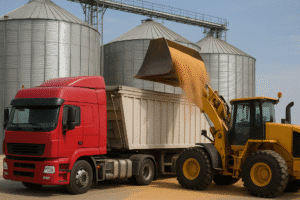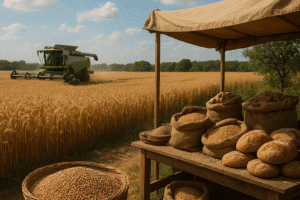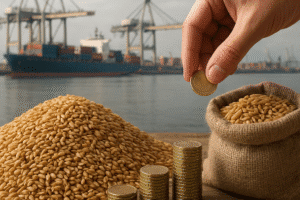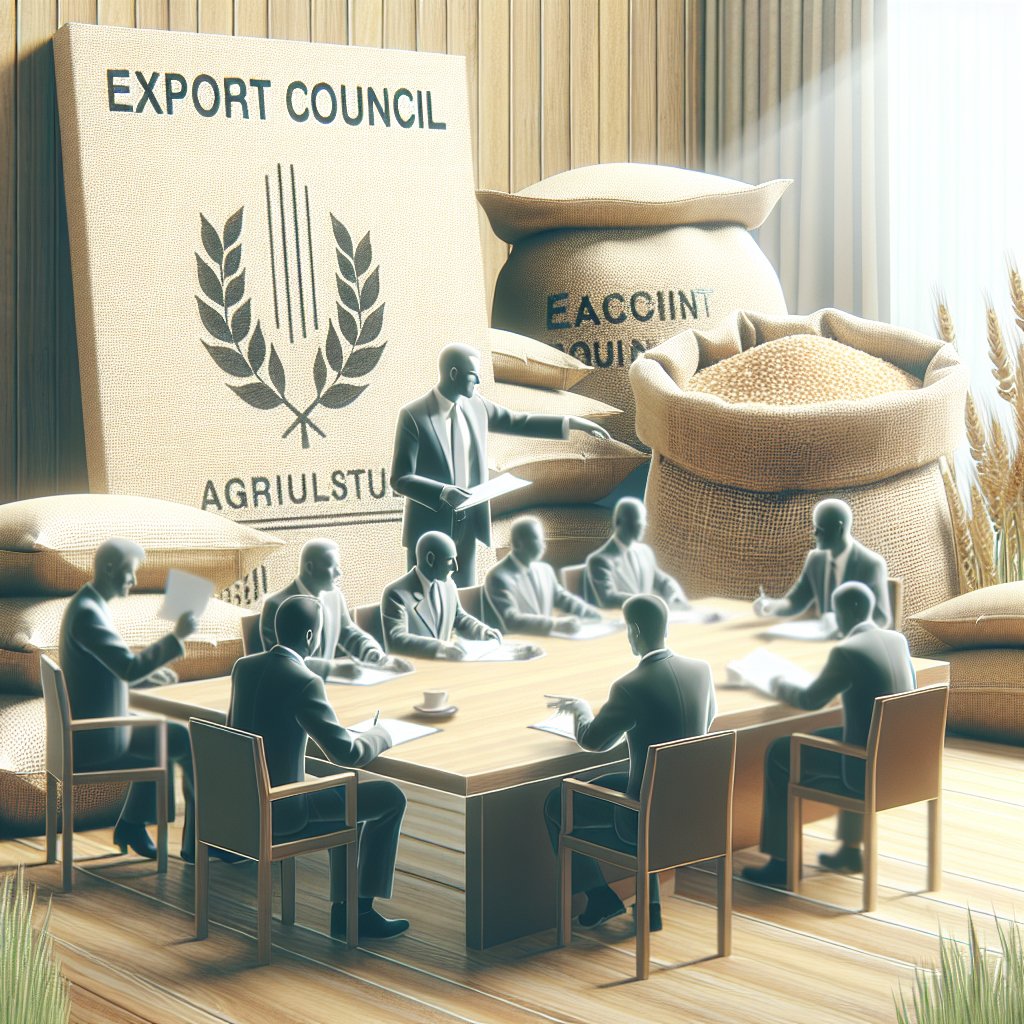The role of export councils in promoting grain trade is crucial for enhancing the global competitiveness of a country’s agricultural sector. These councils serve as vital intermediaries between producers and international markets, facilitating trade relationships and ensuring that local grains reach consumers worldwide. By providing support, resources, and strategic guidance, export councils help to navigate the complexities of international trade, ultimately benefiting farmers, exporters, and the economy as a whole.
Understanding Export Councils
Export councils are organizations that focus on promoting and supporting the export of specific goods, including grains. They play a multifaceted role in the agricultural sector, acting as a bridge between producers and foreign markets. These councils are typically composed of industry experts, government representatives, and stakeholders from the agricultural community. Their primary objectives include:
- Market Research: Conducting in-depth analyses of international markets to identify opportunities for grain exports.
- Trade Promotion: Organizing trade missions, exhibitions, and promotional events to showcase local grains to potential buyers.
- Policy Advocacy: Engaging with government bodies to influence trade policies that benefit grain exporters.
- Education and Training: Providing resources and training for producers on best practices for exporting grains.
By fulfilling these objectives, export councils help to create a favorable environment for grain trade, ensuring that local producers can compete effectively on the global stage.
The Impact of Export Councils on Grain Trade
The impact of export councils on grain trade can be observed through various channels, including economic growth, market access, and sustainability. Each of these aspects plays a significant role in shaping the future of grain exports.
Economic Growth
One of the most significant contributions of export councils is their ability to stimulate economic growth. By promoting grain exports, these councils help to increase the revenue generated by the agricultural sector. This, in turn, leads to:
- Job Creation: As grain exports rise, the demand for labor in farming, processing, and logistics increases, leading to job creation in rural areas.
- Investment Opportunities: A thriving export market attracts investments in infrastructure, technology, and research, further enhancing productivity.
- Increased Income for Farmers: Higher demand for grains often results in better prices for farmers, improving their livelihoods and encouraging sustainable farming practices.
Market Access
Export councils play a pivotal role in facilitating access to international markets. They help local producers navigate the complexities of exporting, including:
- Regulatory Compliance: Ensuring that exporters understand and comply with the regulations and standards of target markets.
- Networking Opportunities: Connecting producers with potential buyers, distributors, and partners in foreign markets.
- Trade Agreements: Advocating for favorable trade agreements that reduce tariffs and barriers to entry for local grains.
By enhancing market access, export councils enable local producers to diversify their customer base and reduce reliance on domestic markets.
Sustainability and Innovation
In recent years, sustainability has become a critical focus for export councils. They encourage practices that not only enhance the quality of grains but also protect the environment. This includes:
- Promoting Sustainable Farming Practices: Educating farmers on methods that reduce environmental impact, such as crop rotation and organic farming.
- Encouraging Research and Development: Supporting innovation in grain production, including the development of drought-resistant varieties and efficient irrigation techniques.
- Building Resilience: Helping farmers adapt to climate change and market fluctuations through training and resources.
By prioritizing sustainability, export councils ensure that grain production remains viable for future generations while meeting the growing global demand for food.
Challenges Faced by Export Councils
Despite their significant contributions, export councils face several challenges that can hinder their effectiveness in promoting grain trade. Understanding these challenges is essential for developing strategies to overcome them.
Global Competition
The grain market is highly competitive, with numerous countries vying for market share. Export councils must continuously adapt to changing market dynamics, including:
- Price Fluctuations: Global grain prices can be volatile, affecting the competitiveness of local products.
- Emerging Markets: New players in the grain market can disrupt established trade patterns, requiring councils to identify and target new opportunities.
- Quality Standards: Maintaining high-quality standards is essential for competing in international markets, necessitating ongoing investment in quality control.
Regulatory Barriers
Export councils often encounter regulatory barriers that can complicate the export process. These barriers may include:
- Tariffs and Quotas: High tariffs and export quotas can limit market access and reduce competitiveness.
- Complex Documentation: Navigating the paperwork required for international trade can be daunting for producers.
- Changing Regulations: Frequent changes in trade regulations can create uncertainty and hinder long-term planning.
To address these challenges, export councils must work closely with government agencies and industry stakeholders to advocate for more favorable trade conditions.
Future Directions for Export Councils
As the global landscape of grain trade continues to evolve, export councils must adapt to new trends and challenges. Several key areas will shape the future of these organizations:
Digital Transformation
The rise of digital technology is transforming the way grain trade is conducted. Export councils can leverage digital tools to:
- Enhance Market Intelligence: Utilizing data analytics to gain insights into market trends and consumer preferences.
- Facilitate E-commerce: Supporting producers in establishing online sales channels to reach international buyers directly.
- Improve Communication: Using digital platforms to connect with stakeholders and disseminate information quickly.
Focus on Sustainability
As consumers become increasingly concerned about sustainability, export councils must prioritize environmentally friendly practices. This includes:
- Promoting Organic Grains: Supporting the production and marketing of organic grains to meet consumer demand.
- Encouraging Sustainable Supply Chains: Working with producers to develop supply chains that minimize environmental impact.
- Advocating for Climate Resilience: Helping farmers adopt practices that enhance resilience to climate change.
Strengthening International Partnerships
Building strong relationships with international partners will be essential for export councils. This can be achieved through:
- Collaborative Initiatives: Partnering with other countries’ export councils to share knowledge and resources.
- Joint Marketing Efforts: Collaborating on marketing campaigns to promote grains in target markets.
- Participation in Global Forums: Engaging in international trade forums to advocate for the interests of local producers.
By focusing on these areas, export councils can enhance their effectiveness in promoting grain trade and ensuring the long-term success of the agricultural sector.
Conclusion
The role of export councils in promoting grain trade is indispensable for fostering economic growth, enhancing market access, and ensuring sustainability in the agricultural sector. By addressing challenges and adapting to new trends, these councils can continue to support local producers and strengthen their position in the global market. As the demand for grains continues to rise, the importance of export councils will only grow, making their work vital for the future of agriculture.













